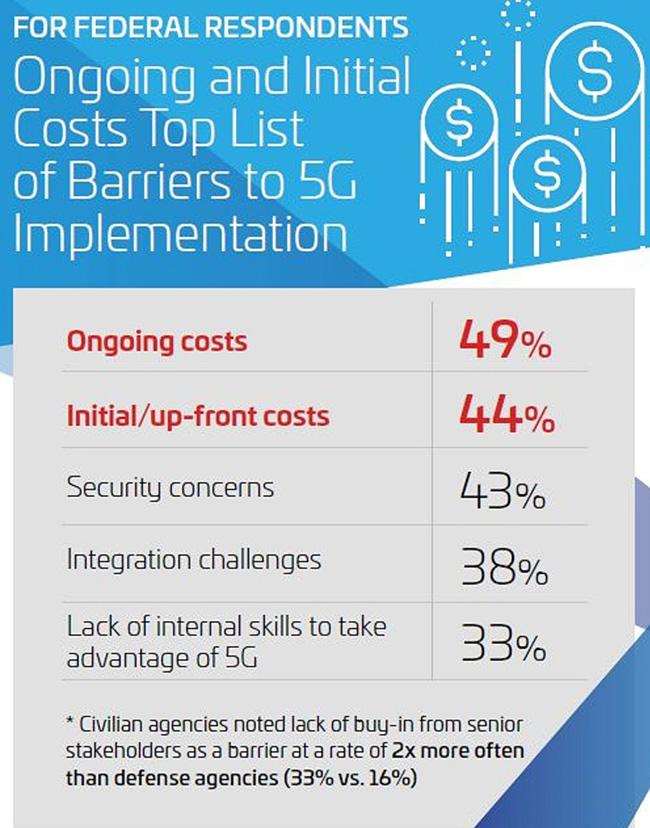Ongoing and initial costs top list of barriers to 5G implementation
5G is set to deliver higher data transfer rates for mission-critical communications and will allow massive broadband capacities, enabling high-speed communication across various applications such as the Internet of Things (IoT), robotics, advanced analytics and artificial intelligence.

According to a study from CommScope, only 46% of respondents feel their current network infrastructure is capable of supporting 5G, but 68% think 5G will have a significant impact on their agency operations within one to four years.
Of the respondents who do not feel their current infrastructure is capable of supporting 5G, none have deployed 5G, 19% are piloting, 43% are planning to pilot, and 52% are not planning or evaluating whether to pilot 5G.
Costs reported as top barriers to 5G implementation
According to the report, ongoing and initial costs are reported as top barriers for federal agencies wishing to implement 5G – 44% believe initial/up-front costs will be the biggest barrier and 49% are concerned about ongoing costs.
“There is no single approach to 5G and no one-size-fits-all 5G solution,” said Chris Collura, vice president, Federal business for CommScope.
“This study indicates that federal agencies are at the beginning stages of 5G evaluation and deployment. As they are looking to finalize their strategy for connectivity, agencies should also consider private networks, whether those are private LTE networks, private 5G networks, or a migration from one to the other to ensure flexibility and scalability.”
Desired outcomes for federal agencies
Remote employee productivity (40%) is one of the top desired outcomes for federal agencies looking to implement 5G, along with introducing high bandwidth (39%), higher throughput (39%) and better connectivity (38%).
Additional findings from the study include:
- 32% hope that 5G will make it easier to share information securely and 32% would like to see easier access to data
- 82% plan to or have already adopted 5G with 6% having already deployed 5G, 14% piloting 5G and 62% evaluating/planning to pilot 5G
- 71% are looking at hardware, software or endpoint upgrades to support 5G
- 83% believe it is very/somewhat important for mission-critical traffic on the agency network to remain onsite while 64% feel it is very/somewhat important